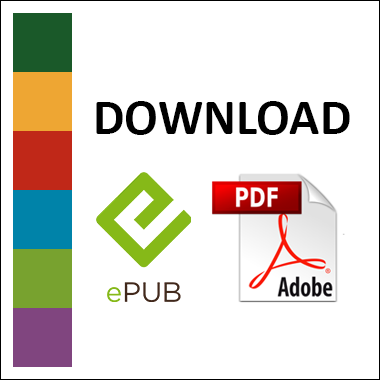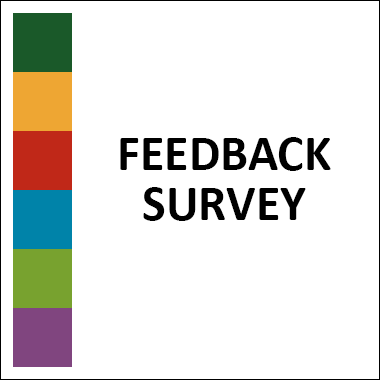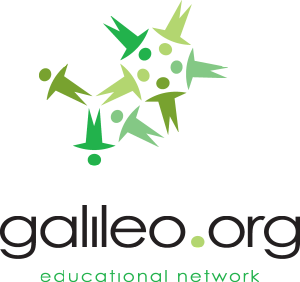How can schools better reflect what students are facing today and in their future?
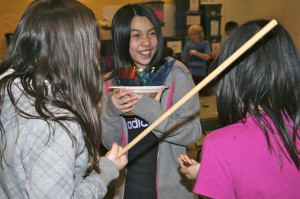 By promoting authentic intellectual work that builds knowledge and deep understanding. Authentic intellectual work requires high-level cognitive performance (i.e. rigourous, in-depth understanding instead of superficial acquaintance with memorized bits of knowledge).1
By promoting authentic intellectual work that builds knowledge and deep understanding. Authentic intellectual work requires high-level cognitive performance (i.e. rigourous, in-depth understanding instead of superficial acquaintance with memorized bits of knowledge).1
The criteria for authentic intellectual work as defined by Newmann and his research colleagues are:
- Construction of Knowledge: using or manipulating knowledge as in analysis, interpretation, synthesis, and evaluation, rather than only reproducing knowledge in previously stated forms.
- Disciplined Inquiry: gaining in-depth understanding of limited topics, rather than superficial acquaintance with many, and using elaborated forms of communication to learn and to express one’s conclusions.
- Value Beyond School: the production of discourse, products, and performances that have personal, aesthetic, or social significance beyond demonstration of success to a teacher.
We know workplace demands are no longer limited to isolated skill sets based on occupation. Critical thinking, problem solving, communication and teamwork are essential competencies, no matter the career path. In the classroom, discipline-based inquiry involves a spirit of investigation always linked to a particular topic or field of study. Consequently, inquiry moves away from a purely teacher or student-centered approach to a form of learning that takes its cue from what the field of study requires of those coming to know it. As they pose guiding questions, problems or tasks that professionals in the field would recognize as important, students and teachers work and learn from experts to develop responses and performances of learning that are meaningful, sophisticated and powerful. (Friesen, 2012).
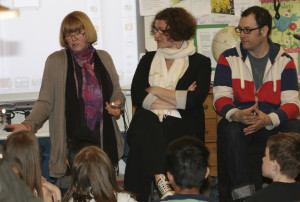 To support students in this process Darling-Hammond (2008) and Barron et al. (1998) argue that scaffolding activities, giving frequent opportunities for formative assessment, as well as powerful guiding questions ensure inquiry-based projects lead to deep understanding. In general, a scaffolding activity involves tools, strategies and guides to support students in gaining levels of achievement that would not be otherwise possible by actively taking students into the depths of how knowledge is created within the fields of knowledge or disciplines.
To support students in this process Darling-Hammond (2008) and Barron et al. (1998) argue that scaffolding activities, giving frequent opportunities for formative assessment, as well as powerful guiding questions ensure inquiry-based projects lead to deep understanding. In general, a scaffolding activity involves tools, strategies and guides to support students in gaining levels of achievement that would not be otherwise possible by actively taking students into the depths of how knowledge is created within the fields of knowledge or disciplines.
So how do we get to this point?
There are several themes to keep in mind as one shifts towards a classroom engaged in discipline-based inquiry:
- Knowledge building as a community: Knowledge doesn’t merely accumulate; it advances. In any knowledge-building organization, people are honoured for the contributions they make, not for what exists in the mind of each individual. The main value in this? Student-generated theories and models should be judged more by their value as tools enabling further growth, not by conformity to accepted knowledge.
- Knowledge advancement as idea improvement: Many people still think of knowledge as advancing towards a final state, which is truth. But progress in many fields, such as technology, science, mathematics, actually opens up new problems to be solved and with it, further opportunities for advancement. Except in a few areas such as disease control, progress is measured in comparison to what has gone before, rather than by distance to a predetermined end-point. In knowledge building, idea improvement is an explicit principle, something that guides the efforts of students and teachers, rather than something that remains implicit in inquiry and learning activities (Scardamalia, 2002).
- Knowledge of, in contrast to knowledge about: Knowledge about is the hallmark of traditional educational practice. It is the stuff of textbooks and subject-matter tests. It entails knowledge that can be explicitly stated or demonstrated. Knowledge of, on the other hand, is activated when a need for it is encountered in action. It’s a much richer concept than the procedural knowledge of about.
- Discourse as collaborative problem solving: Classroom discussions must contribute to idea improvement with the aim of shared understanding; it can’t degenerate into a face-off of opinions, and it can’t be all form and process. There must be a shared commitment to progressing and expanding the base of accepted fact.
- Constructive use of authoritative information: we do not want students to meekly accept authoritative pronouncements. On the other hand, it is impossible to function in society without taking large amounts of information on authority. Judging the quality of information is not a separate problem from the knowledge-building task, it is part of the task. Judgment may involve argument, but it is argument in the service of the overall aim to expand upon and improve ideas .
A word about inquiry learning and academic rigour:
Rigor is commonly understood as imparting more sophisticated information to students. But in the context of inquiry-based learning, the following definition is offered:
Rigour involves “being in the company of a passionate adult who is rigorously pursuing inquiry in the area of their subject matter and is inviting students along as peers in that discourse.” (2011).
-Larry Rosenstock, Chief Executive Officer, High Tech High
References
The conception of authentic intellectual work was proposed originally by Archbald and Newmann (1988) and then revised and elaborated with specific criteria for describing authentic instruction, authentic assessment tasks, and the scoring of student work in Newmann, Secada and Wehlage (1995). Further elaboration of these ideas and empirical research showing a connection between authentic pedagogy and authentic student achievement in many schools across the United States is presented in Newmann and Associates (1996) and Newmann, Lopez and Bryk (1998). ↩
